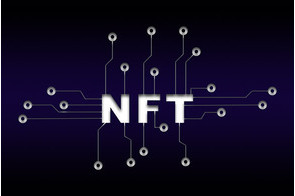Latest News
Global crypto market capitalisation grows to $1.73 trillion

News Highlight
The market cap of crypto currencies first crossed the $1 trillion mark on January 6, 2021 amid growing awareness and more investment in virtual currency assets.
Data obtained by Financial Nigeria from CoinMarketCap, a price-tracking website for cryptocurrency assets, shows the market capitalisation of global digital currency assets as at today is $1.73 trillion, a 0.51 per cent increase over the last 24-hours. The crypto market is open 24/7, and the market cap data is as at 4pm Nigeria time.
Bitcoin (BTC) remains the market leader, accounting for 61.3 per cent market share, with a $1.06 trillion market cap. As at the time of writing, the crypto currency was trading at over $56,73. The world’s second largest cryptoasset by market cap after BTC is Ethereum, with market cap of $207.37 billion, followed by Binance Coin at $45.61 billion.
The value of the total volume of cryptoassets traded over the last 24 hours is $131.54 billion, representing a 2.56 per cent increase, according to CoinMarketCap.
The volume and valuation of digital currencies have been growing globally. The market cap of crypto currencies first crossed the $1 trillion mark on January 6, 2021 amid growing awareness and more investment in virtual currency assets.
The total number of cryptocurrencies has grown by 67.94 per cent from 5,197 in March 2020 to 8,728 as of March 2021, according to a report on Wednesday by Crypto Parrot, a cryptocurrency trading simulator, which analysed data from CoinMarketCap. Based on the report, there were over 3,500 newly created cryptocurrencies in the last 12 months.
Compared to March 2017 when the total number of digital currency assets was 649, there has been a growth of 1,244.83 per cent. The main factors driving the surge in new cryptocurrencies, according to Crypto Parrot, include institutional investors that are investing in digital assets and the potential for mainstream adoption of cryptocurrencies.
The Central Bank of Nigeria (CBN) has maintained its non-friendly stance on cryptocurrencies in the country, banning their use by financial institutions and prohibiting the facilitation of payments for crypto exchanges. However, Nigerian Vice President, Yemi Osinbajo, has opposed the CBN's stance.
Speaking at the CBN Bankers Committee Economic Summit last month, he called for a "knowledge-based" regulatory regime for virtual currency transactions in Nigeria, instead of an outright ban.
Related News
Latest Blogs
- Why electricity privatization failed (2)
- How net metering can boost embedded power generation
- Adaora Umeoji and gender in Nigerian banking leadership
- Is protest an endangered human right of Nigerians?
- Issues in using price control in Nigeria
Most Popular News
- IFC, partners back Indorama in Nigeria with $1.25 billion for fertiliser export
- Univercells signs MoU with FG on biopharmaceutical development in Nigeria
- CBN increases capital requirements of banks, gives 24 months for compliance
- Ali Pate to deliver keynote speech at NDFF 2024 Conference
- CBN settles backlog of foreign exchange obligations
- Nasdaq Dubai welcomes $600m sukuk listing by Islamic Development Bank






